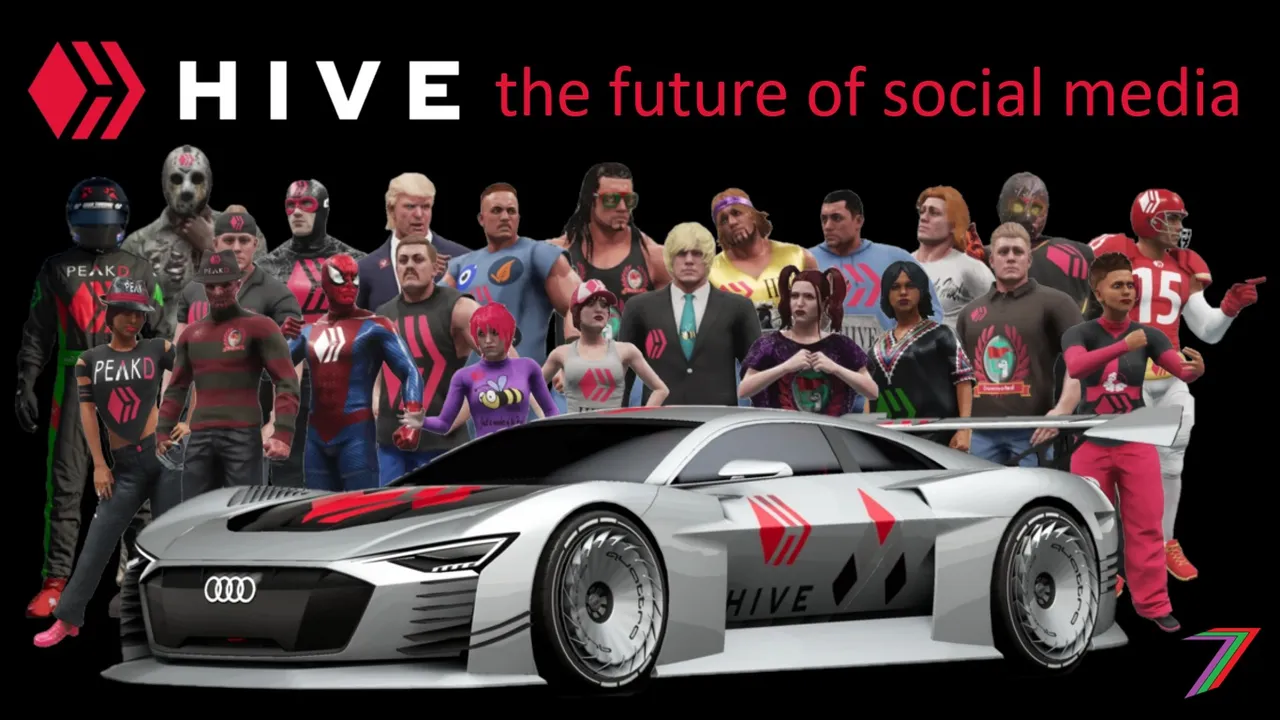Hi Everyone,
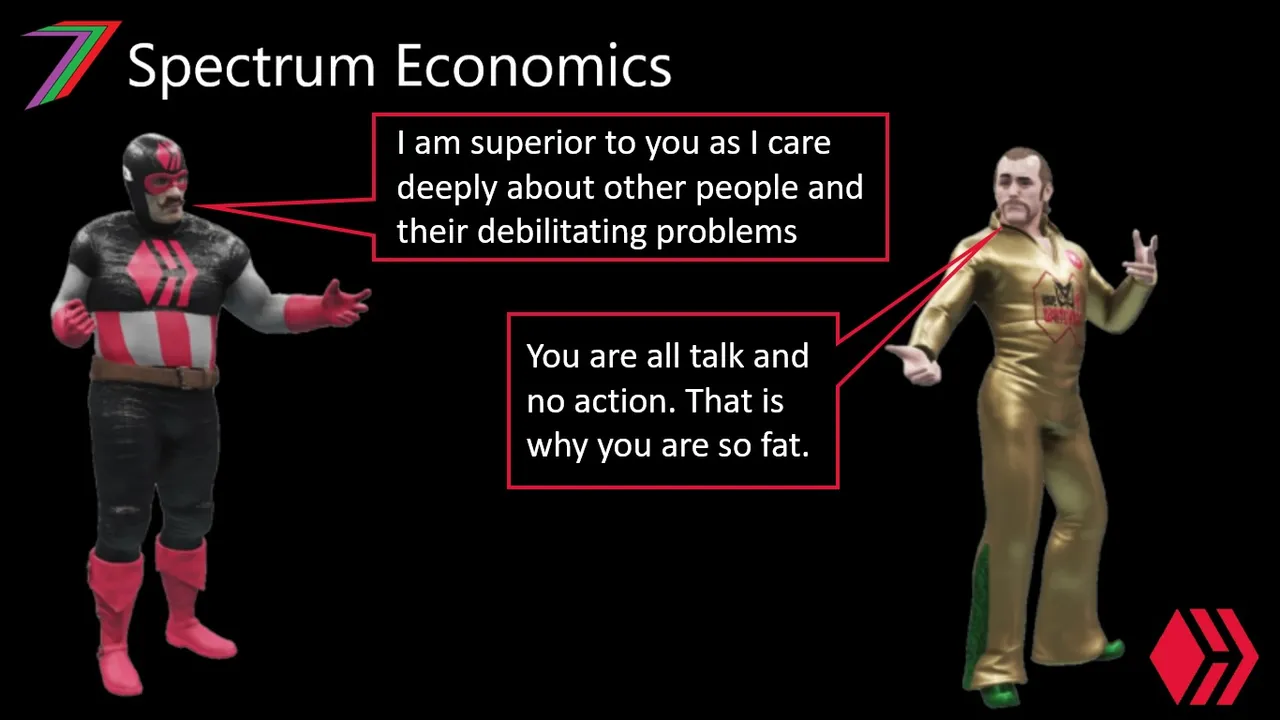
I have noticed that self-righteous identification is becoming very popular. Every day social media such as Twitter and Facebook are flooded with comments and posts from people belittling others and proclaiming themselves to be superior. Many of these people identify themselves and their beliefs as virtuous and those who oppose or disagree with them or their beliefs as stupid or villainous. This creates an environment where only one set of views are tolerated as these are considered the ‘right’ views to have.
There are several self-righteous identifiers commonly quoted in mainstream media as well as in social media. In this post, I will discuss ‘woke’, ‘progressive’, and ‘anti-racist’.
Woke
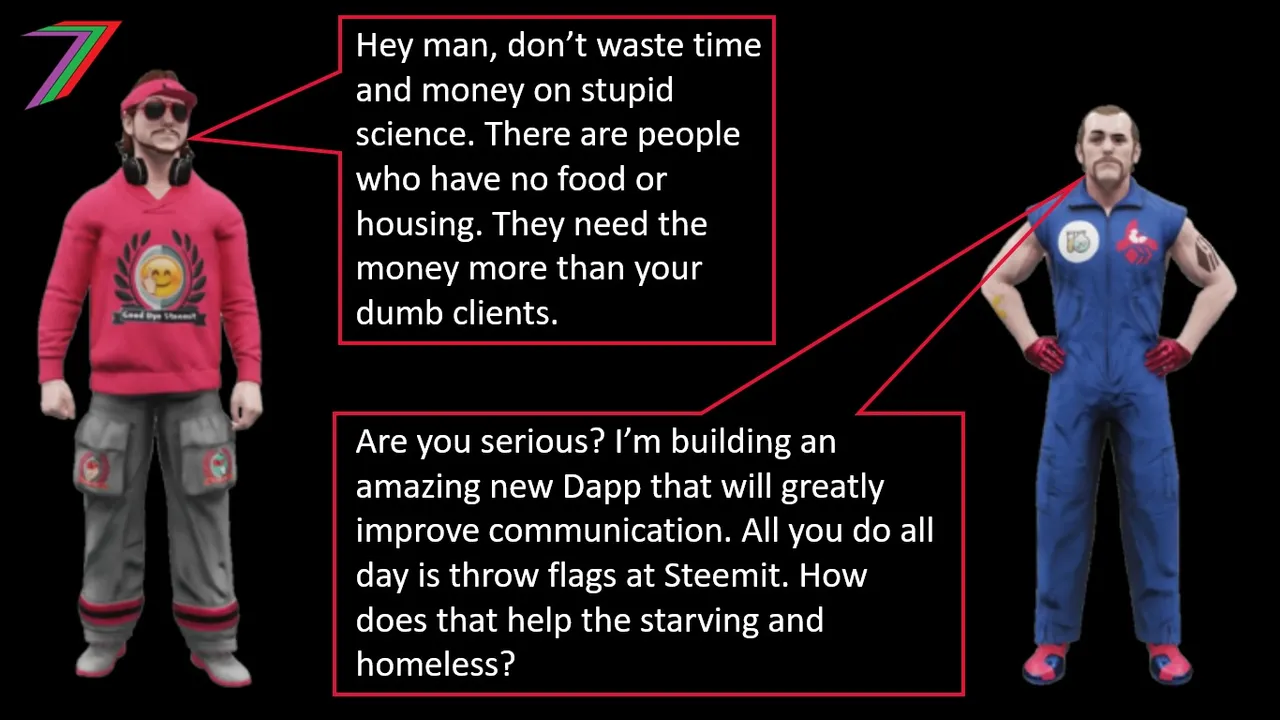
Woke is defined as follows by the Cambridge and Urban dictionaries
Aware, especially of social problems such as racism and inequality (Cambridge)
The act of being very pretentious about how much you care about a social issue (Urban Dictionary)
The two dictionaries define these terms quite differently. A person claiming to be ‘woke’ would align themselves with the Cambridge dictionary or similar definitions while someone who opposes the ‘woke’ culture would prefer the Urban dictionary or similar definitions. Both definitions are one-sided and leave little to no room for debate.
Let us revisit ‘woke’ in the context of the Cambridge definition. The words ‘racism’ and ‘inequality’ have strong negative connotations. What if the terms ‘nationalism’ and ‘individualism’ were used instead? Someone could identify as being aware of the social problems caused by nationalism and individualism. Instead of being ‘anti’ the negative aspects, a person could identify with positive aspects of opposite positions. Instead of opposing nationalism, a person could support globalism. Instead of opposing individualism, a person could support collectivism.
In my post 'Exploring the Political Spectrum (Octagon Model)', I present a model that investigates different political perspectives. The model displays preferences between collectivism and individualism, globalism and nationalism, and order and freedom. See Figure 1 below.
Figure 1: Political Spectrum Octagon Model
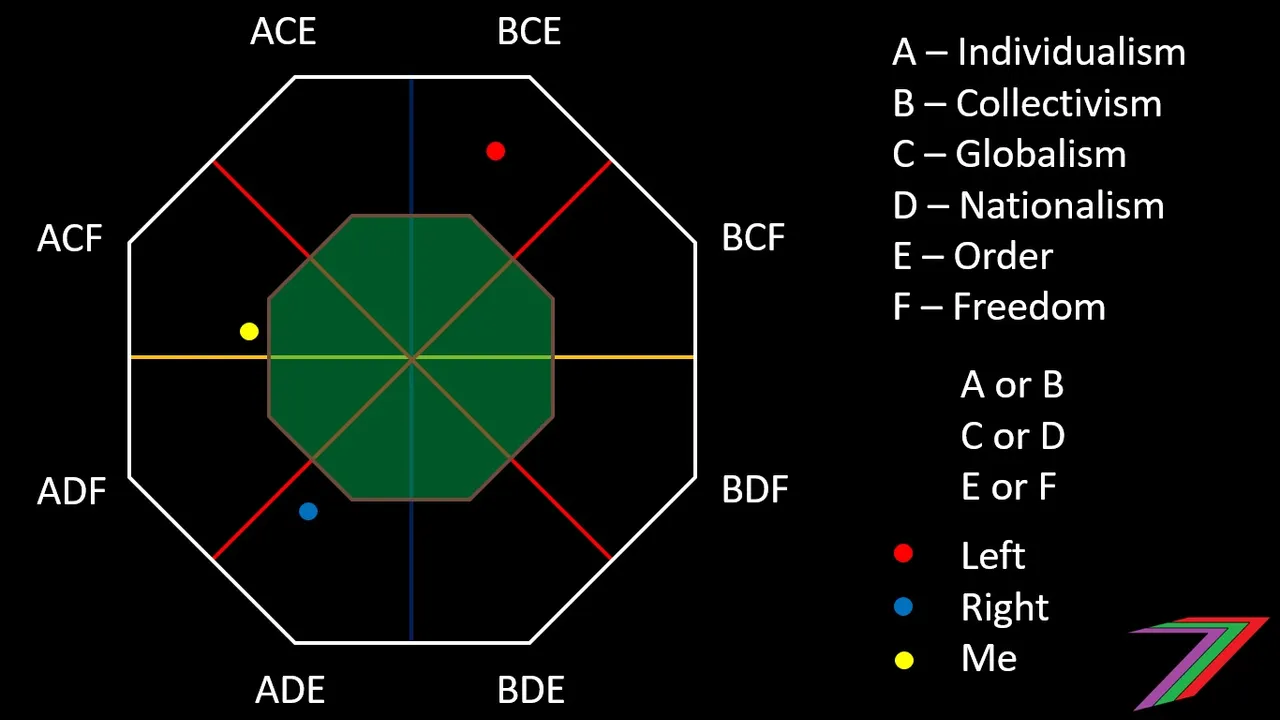
My reemphasized definition of ‘woke’ would fit into the either the ‘BCF’ or ‘BCE’ sections of the model. I would suspect someone identifying as ‘woke’ would most likely lean towards the ‘BCE’ section as the initial (Cambridge) definition implies ‘woke’ as a superior position which others should follow. Thus, implying a reference of 'order' over 'freedom'.
Progressive
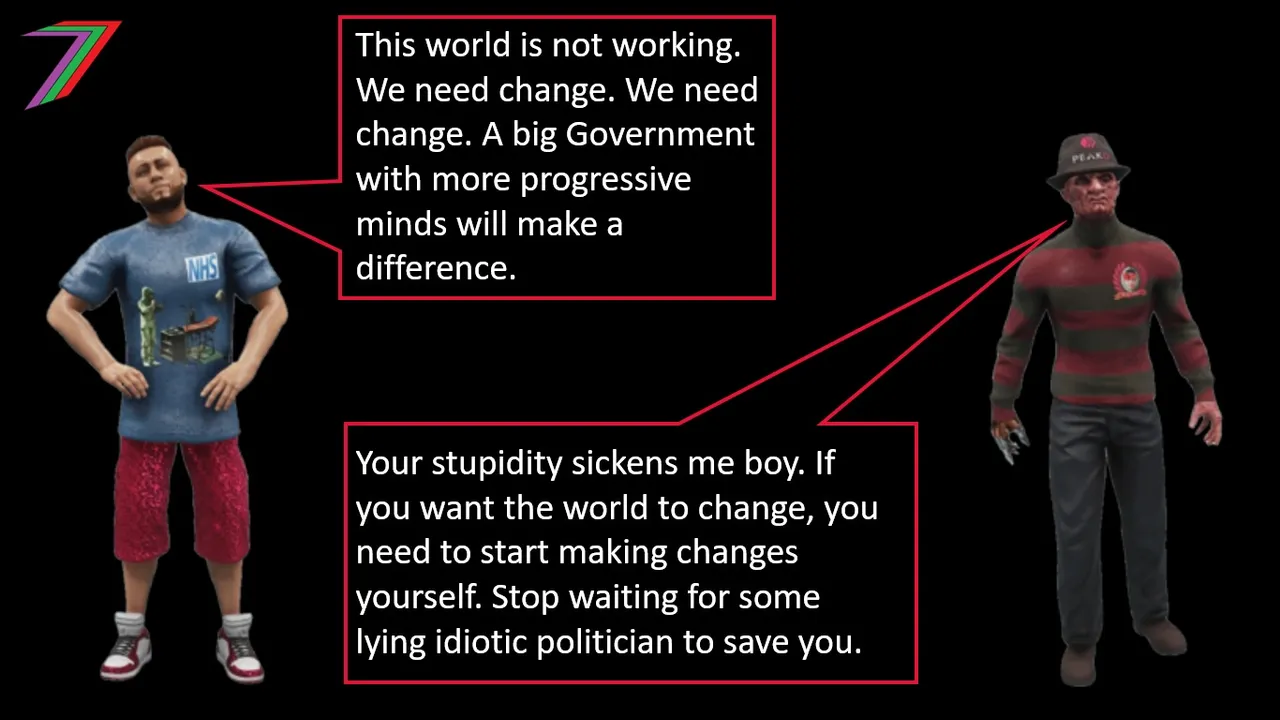
Progressive is defined as follows by the Cambridge and Urban dictionaries
A person who supports new ideas and social change, especially one who belongs to a political party (Cambridge)
A term that former liberals co-opted when they discovered that their delusional beliefs didn't fit any recognized definition of the word liberal (Urban Dictionary)
As with the definitions of ‘woke’, the definitions of ‘progressive’ indicate that it is either a positive or a negative system of beliefs. Those that identify as being ‘progressive’ would acknowledge the Cambridge or similar definitions. Those that do not identify as being ‘progressive’ are more likely to acknowledge the Urban Dictionary or similar definitions.
Let us revisit ‘progressive’ in the context of the Cambridge definition. New ideas and social change indicate dissatisfaction with existing social or political structures. This could mean literally anything. However, new ideas and change would be more appealing to those struggling in the existing systems. Therefore, those opposing the exiting Government could garner more support by claiming to be ‘progressive’. A self-righteous ‘progressive’ could claim anyone not supporting his or her own ideals to be ‘regressive’ (Typically used derisively to imply another's political beliefs are primitive or backward (Urban Dictionary)).
Anti-racism
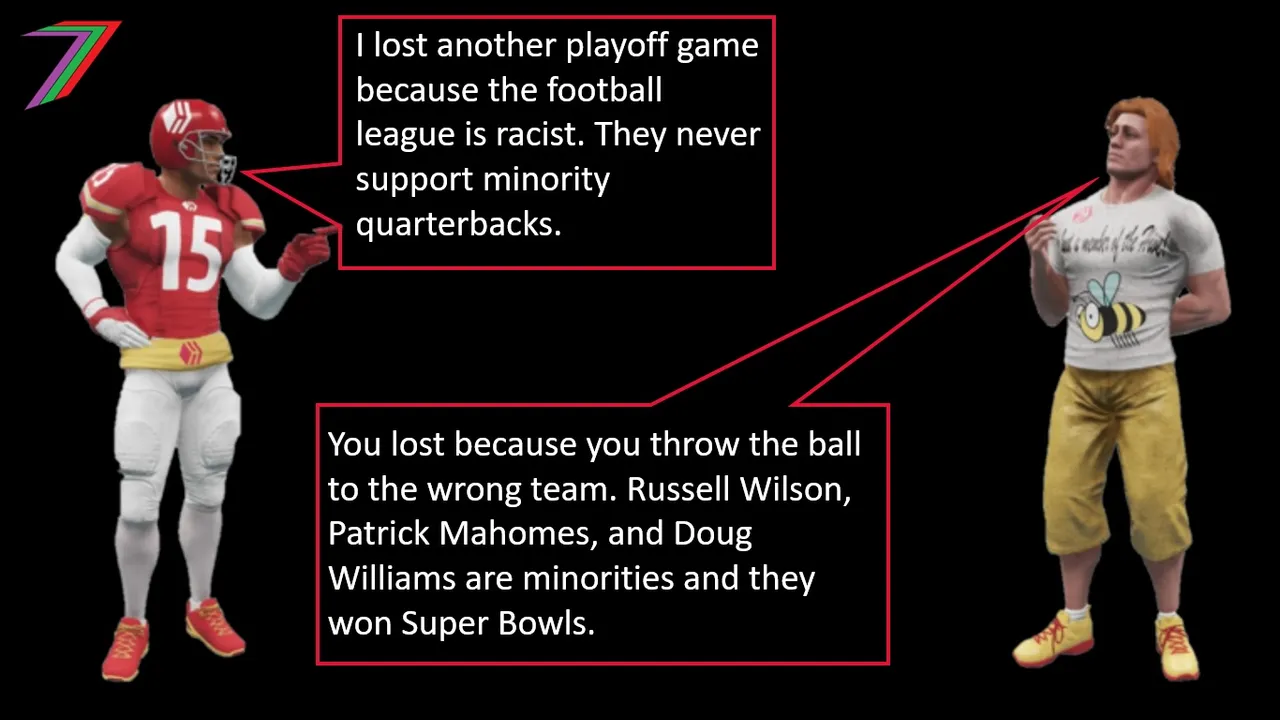
Anti-racist is defined as follows by the Cambridge and Urban dictionaries
Opposed to the unfair treatment of people who belong to other races (Cambridge)
Calling every white person a racist for being born white (Urban Dictionary)
Anti-racism seems to be closely linked to ‘woke’ culture. It follows along the lines of calling out and shaming behaviour that has been interpreted as racist. The Cambridge definition depicts ant-racism in a positive light as it assumes anti-racism claims to be legitimate. Whereas, the Urban Dictionary takes the opposite approach and treats anti-racism as a form of racism in itself.
My biggest problem with anti-racism is that it opposes something negative rather than supporting something positive. Instead of identifying as an anti-racist, someone could support ideals that can promote racial tolerance and sympathy. There are considerably wider differences between cultures than race. Many things such as religion, tradition, environment, customs, language, and food influence culture. It is quite common that a race of people are linked closely by culture and this is mistaken for being a trait of their race. Therefore, someone could support ideals that can promote culture tolerance and sympathy.
There are many ways of increasing cultural tolerance and sympathy. These include understanding and learning about different cultures (education), spending time with people of different cultures (social), visiting countries of people with different cultures (travel), and attending or witnessing different cultural events (participation and/or observation).
There is also the argument of systemic racism. Systemic ‘racism’ is a symptom of a system that does not work for the people. I have discussed many of the problems relating to existing roles and actions taken by Governments as well as discussed several possible solutions to these in my solutions series. Perceived systemic racism should not be tackled directly. Instead, the causes of all systemic problems need to be investigated and addressed. Expanding the existing faulty system will not address any of the symptoms or problems caused by it.
Political correctness
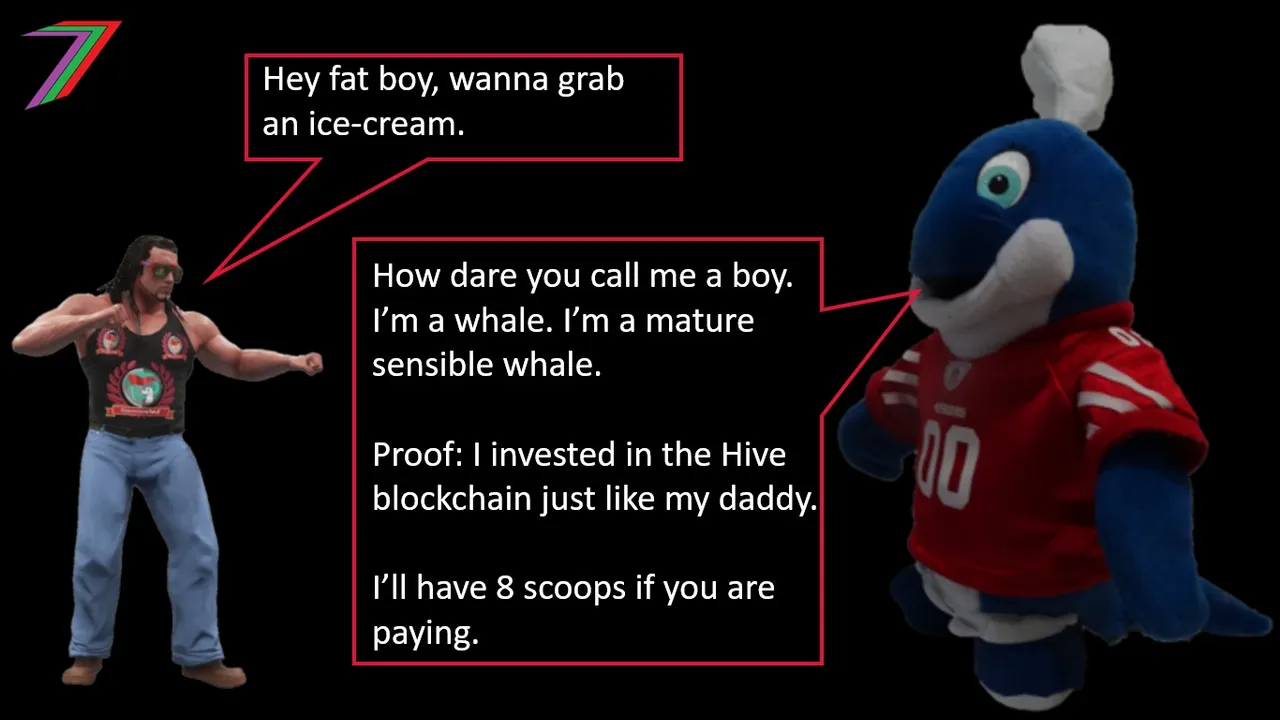
Political correctness is not a self-righteous identifier in itself but is a tool often used by those that identify themselves in a self-righteous manner.
Political correctness is defined as follows by the Cambridge and Urban dictionaries
The act of avoiding language and actions that could be offensive to others, especially those relating to sex and race (Cambridge)
A form of speech that makes it impossible to say anything without offending a minority (Urban Dictionary)
One definition (Cambridge) considers political correctness as a tool to prevent disharmony and the other definition (Urban Dictionary) considers political correctness as a tool targeted at reducing free speech. I can sympathise with people who oppose hate speech or actions used to incite violence. However, political correctness rarely serves that role. Instead, it nitpicks behaviour that could cause any form of possible offence. This often extends to the ridiculous. Another use of political correctness is demonise particular words. A word, by itself, cannot be offensive. However, a collection of words can be used to cause offence. It is the context of word usage that matters and not the individual word.
Other self-righteous identification
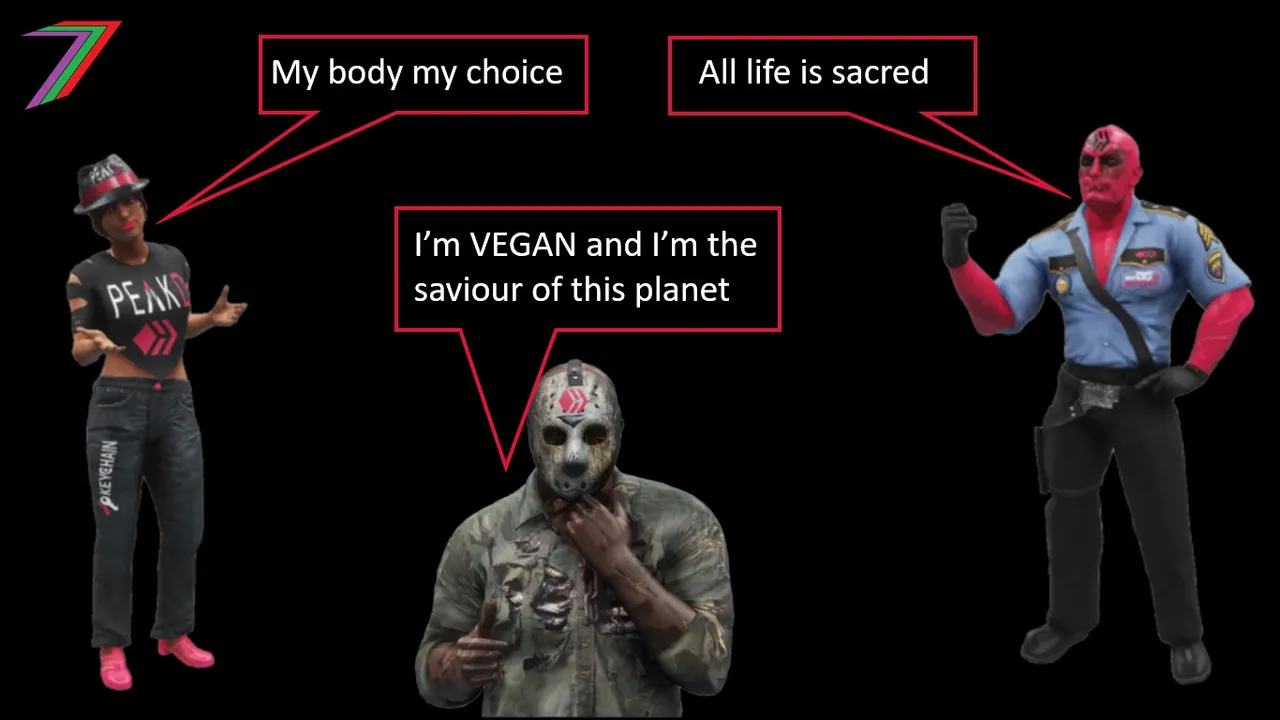
In my post 'My take on the abortion debate', I discussed both sides of the debate in regards to whether abortion should be considered murder. Both sides of the argument have assumed self-righteous identification. Those that believe abortion is murder often call themselves pro-life and those that believe that abortion is not murder often call themselves pro-choice and push the focus of the debate towards mother’s rights to choose.
Pro-life is defined as follows by the Cambridge and Urban dictionaries
Opposed to the belief that a pregnant woman should have the freedom to choose an abortion (= the intentional ending of pregnancy) if she does not want to have a baby (Cambridge)
The belief that all life is sacred and deserves to be protected. One who is truly pro-life will oppose capital punishment, war, poverty, and all forms of physical or mental torture. Such a person will see abortion as a tragedy for all involved, not a "reproductive right" to be celebrated - and will work to end abortion, not by force or intimidation, but by working to change the social and economic conditions that lead people to choose abortion (Urban Dictionary)
Pro-choice is defined as follows by the Cambridge and Urban dictionaries
Supporting the belief that a pregnant woman should have the freedom to choose an abortion (= the intentional ending of pregnancy) if she does not want to have a baby (Cambridge)
A person who thinks the government does not have the right to choose what a woman has to do with her body (Urban Dictionary)
In the USA, on average, people have been moderately in favour of pro-choice over pro-life but that gap has closed very slowly. How has self-righteous identification played a role in maintaining the opposition between these two groups? Figure 2 contains how people have self-identified as either pro-life or pro-choice in the USA between 1996 and 2018.
Figure 2: Self-identifying as pro-choice or pro-life
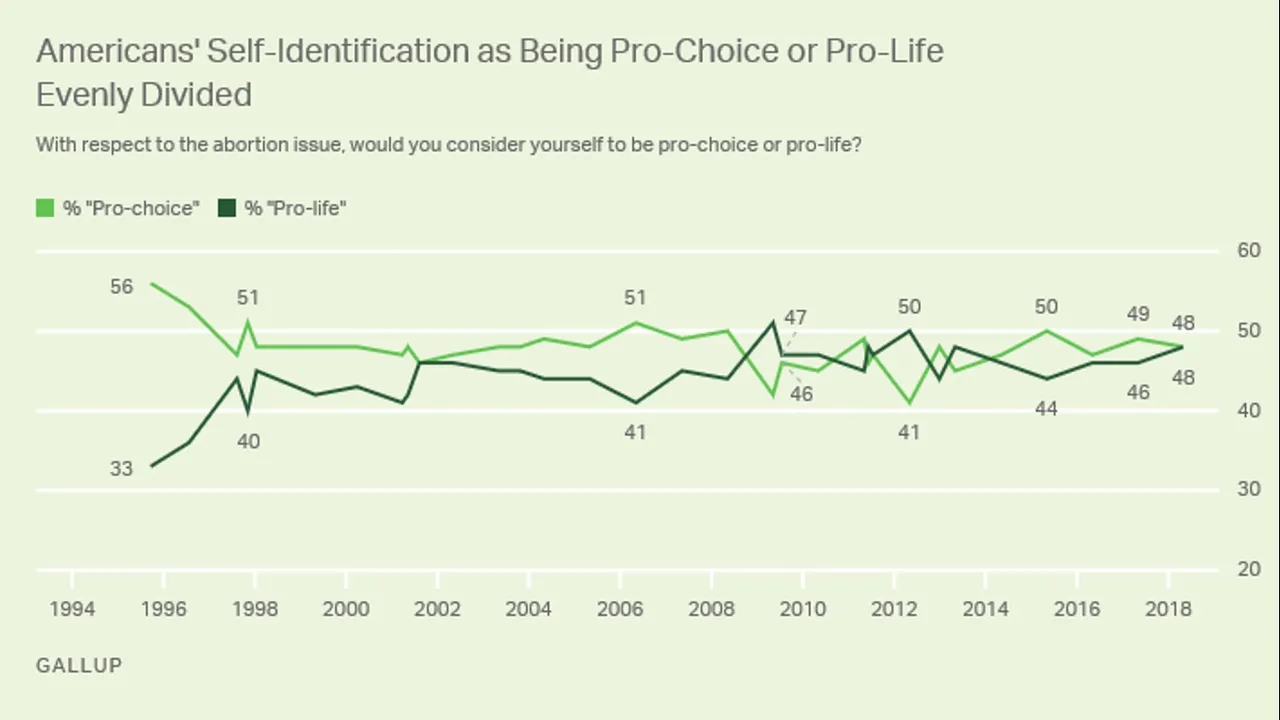
Source: Gallup
Climate change activism is going down the path of self-righteous identification. Many climate change activists claim to be ethically superior because they believe they are saving the planet and those that do not support or join their cause are harming the planet. I have been a vegan for about 4 years. I am disappointed to see the climate change movement use veganism as a tool to promote their own agendas. Even veganism by itself is being used as a vehicle to claim superiority over others when it should be used to spread information so that people can make up their own minds rather than be forced to adopt a vegan lifestyle.
Dangers of self-righteous identification
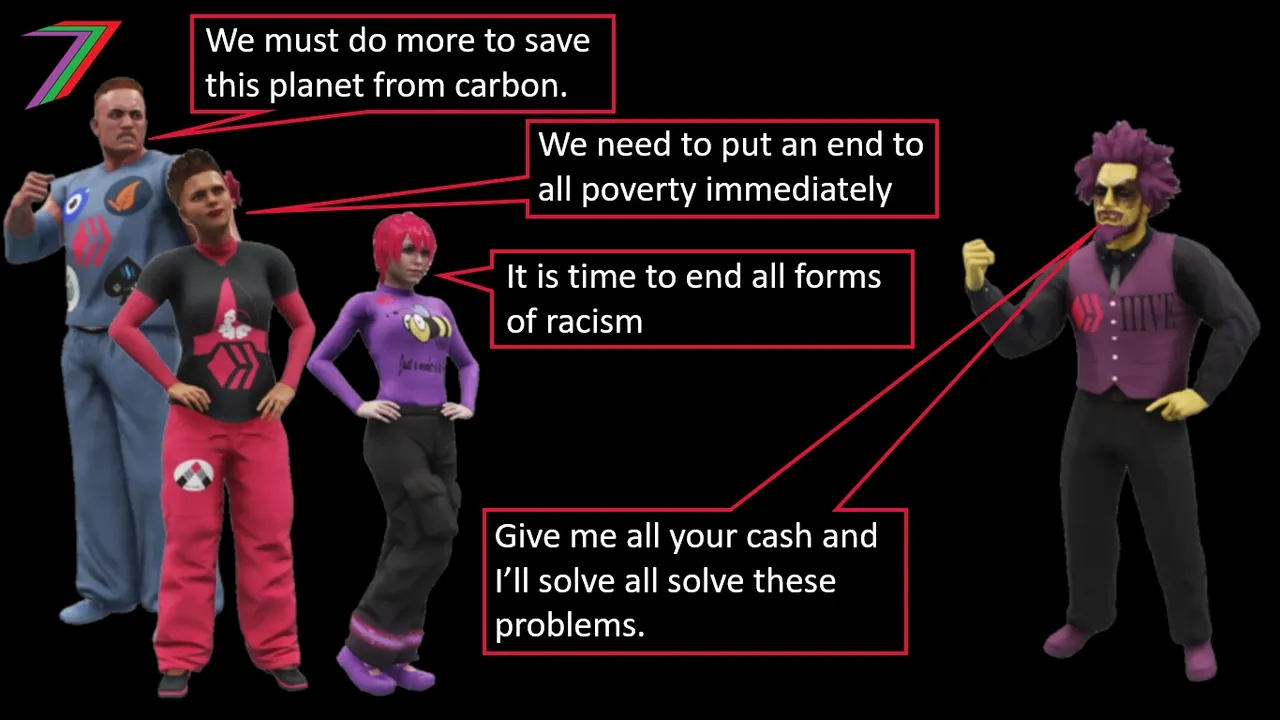
Self-righteous identification is dangerous for a number of reasons.
- It inhibits personal growth.
- It creates intolerance to those of different beliefs and practices.
- It facilitates control and manipulation.
- It causes people to become the opposite to what they claim to be
A self-righteous identification will inhibit personal growth because a person who has identified himself or herself to be superior to those that oppose them. This person will be unwilling to learn from someone who they consider has an inferior perspective on something. This person is more likely to only bond with people that share this same self-righteous identification. This is likely to cause them to be exposed to a narrower range of ideas and knowledge.
A self-righteous identification will create intolerance to those of different beliefs and practices. If someone has a belief or practice that does not align with the limited ideals of a self-righteous identification, these people are not likely to be tolerated. This again stems from the idea that those that do not follow the same ideology are inferior. A person who has a self-righteous identification may attempt to convert those who have a different belief system. If they fail to do so, they may resort to mocking or belittling the alternative belief. This could cause conflicts between different groups of people, as neither side will be willing to understand the other groups’ point of view.
Someone who has a self-righteous identification will be easier to manipulate than someone who has a more open, broader and flexible belief system. This is because this person is more likely to be narrow-minded. A group leader can take advantage of this person’s lack of perspective as well as loyalty to the shared self-righteous identification. Even if this person can identify that the path they have taken has diverged from his or her initial believed self-identification, it is difficult for them to turn back as the group, which they identify with will reject them.
Ironically, adopting a self-righteous identification often leads to supporting the opposite views claimed to be believed. For example, an anti-racist might blame another race of racism, which in itself is racist. This is because self-righteous identification is rigid and often used to target others. A better approach would be to support or pursue the ideologies that align with your views. Therefore, this will enable you to reduce what you do not like, by replacing it with you do like.
Conclusion
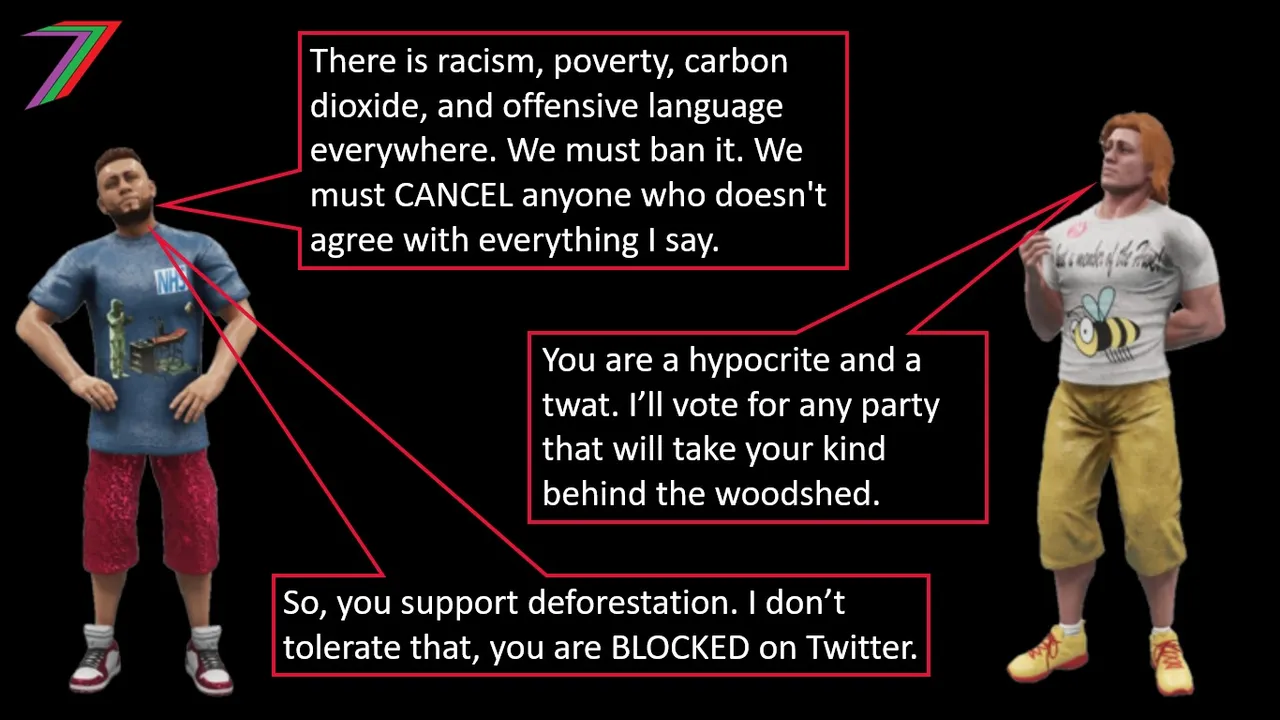
Self-righteous identification concerns me, as it is dividing society into the ‘virtuous’ and ‘unvirtuous’. When groups of people have determined they are correct, they often lose respect for alternative opinions. As the number of people with same self-righteous identities increases, those that oppose them become more unified. They form their own anti-self-righteous groups that, ironically, become self-righteous in their own right. We arrive at a situation where we have two large groups of people with fixed ideas and values who are in direct opposition to each other. Both these groups become narrow-minded and easy to manipulate.
Two large groups of people with shared strongly opposing views feed the two party political system. One party will promote the self-righteous identity and the other party will oppose it. To read more about my views on the two party political system read my post 'The Two-Party Political System – The dictatorship we didn’t know we had'.
Instead of adopting a self-righteous identity, people can choose to follow ideologies that are consistent with their belief system. People should understand how these ideologies support their beliefs as well as the possible shortcomings they may have and why other people may oppose these ideologies. For example, a person who supports globalism should understand that some people are concerned about the dilution of culture.
More posts
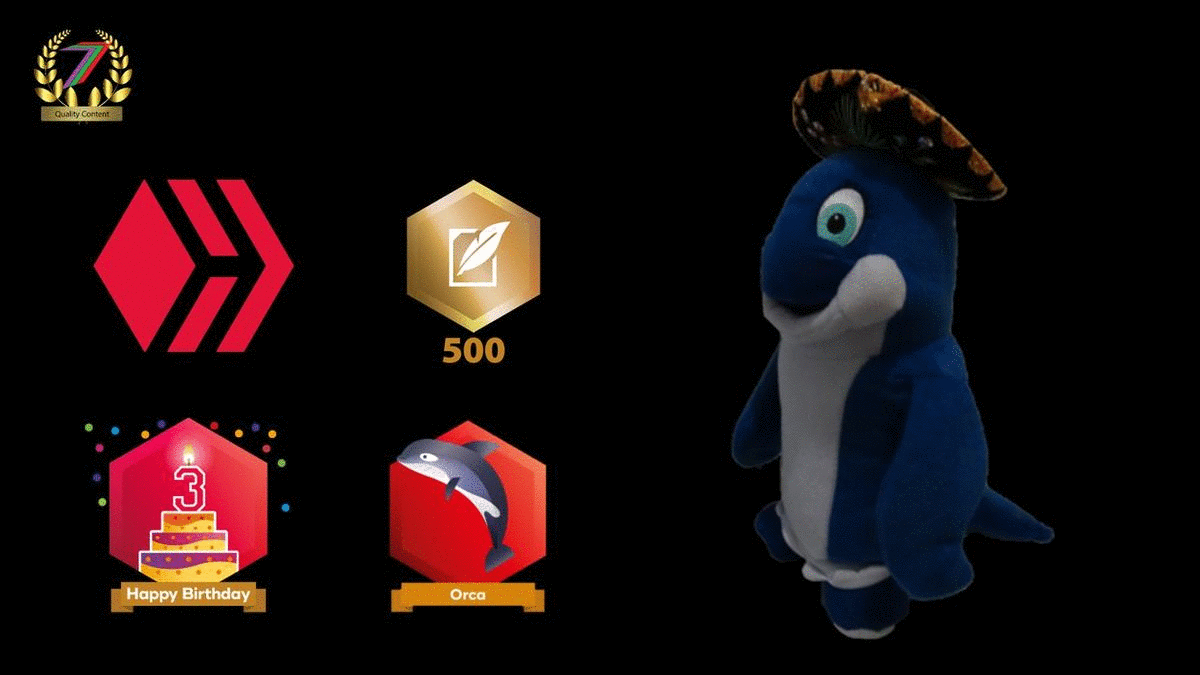
If you want to read any of my other posts, you can click on the links below. These links will lead you to posts containing my collection of works. These posts will be updated frequently.
Future of Social Media
